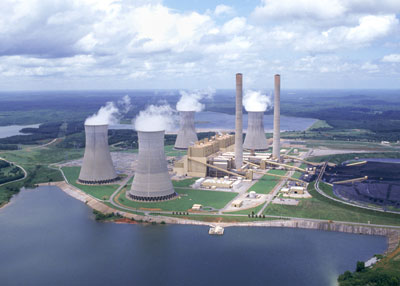
Among 50,000 power plants worldwide, which are the biggest CO2 emitters? The Center for Global Development has analyzed that. Turns out Australians are (still) the biggest per capita emitters (11 tons of power-sector CO2 emissions per person per year). Americans are the biggest overall (>9 tons pp). China (2 tons pp) and India (0.5 tons pp) are still lightweights per capita, though seriously competitive on a cumulative level.
Globally, power generation emits nearly 10 billion tons of CO2 per year. The 8,000 power plants in the US spew more 25 percent of that. Roughly 2.8 billion tons per year. The US’s biggest CO2 emitter is Southern Co, the sty (pig or eye, your choice) of the nation, with annual emissions of 172 million tons, followed by dirtbags American Electric Power Company Inc, Duke Energy Corp, and AES Corp.
Here are dirtiest dozen individual plants in the US. All are coal-fired. Any in your hood, parading as do-gooders?
• The Scherer plant in Juliet, GA: 25.3 million tons
• The Miller plant in Quinton, AL: 20.6 million tons
• The Bowen plant in Cartersville, GA: 20.5 million tons
• The Gibson plant in Owensville, IN: 20.4 million tons
• The W.A. Parish plant in Thompsons, TX: 20 million tons
• The Navajo plant in Page, AZ: 19.9 million tons
• The Martin Lake plant in Tatum, TX: 19.8 million tons
• The Cumberland plant in Cumberland City, TN: 19.6 million tons
• The Gavin plant in Cheshire, OH: 18.7 million tons
• The Sherburne County plant in Becker, MN: 17.9 million tons
• The Bruce Mansfield plant in Shippingport, PA: 17.4 million tons
• The Rockport plant in Rockport, IN: 16.6 million tons.
The least dirty CO2 region in the US is the West Coast, where much of the electric power is generated by nuclear and hydroelectric plants.
Number one worst power plant the world is Taichung Lung-Ching Township Taiwan, at 41.3 million tons a year.
Julia Whitty is Mother Jones’ environmental correspondent. You can read from her new book, The Fragile Edge, and other writings, here.















